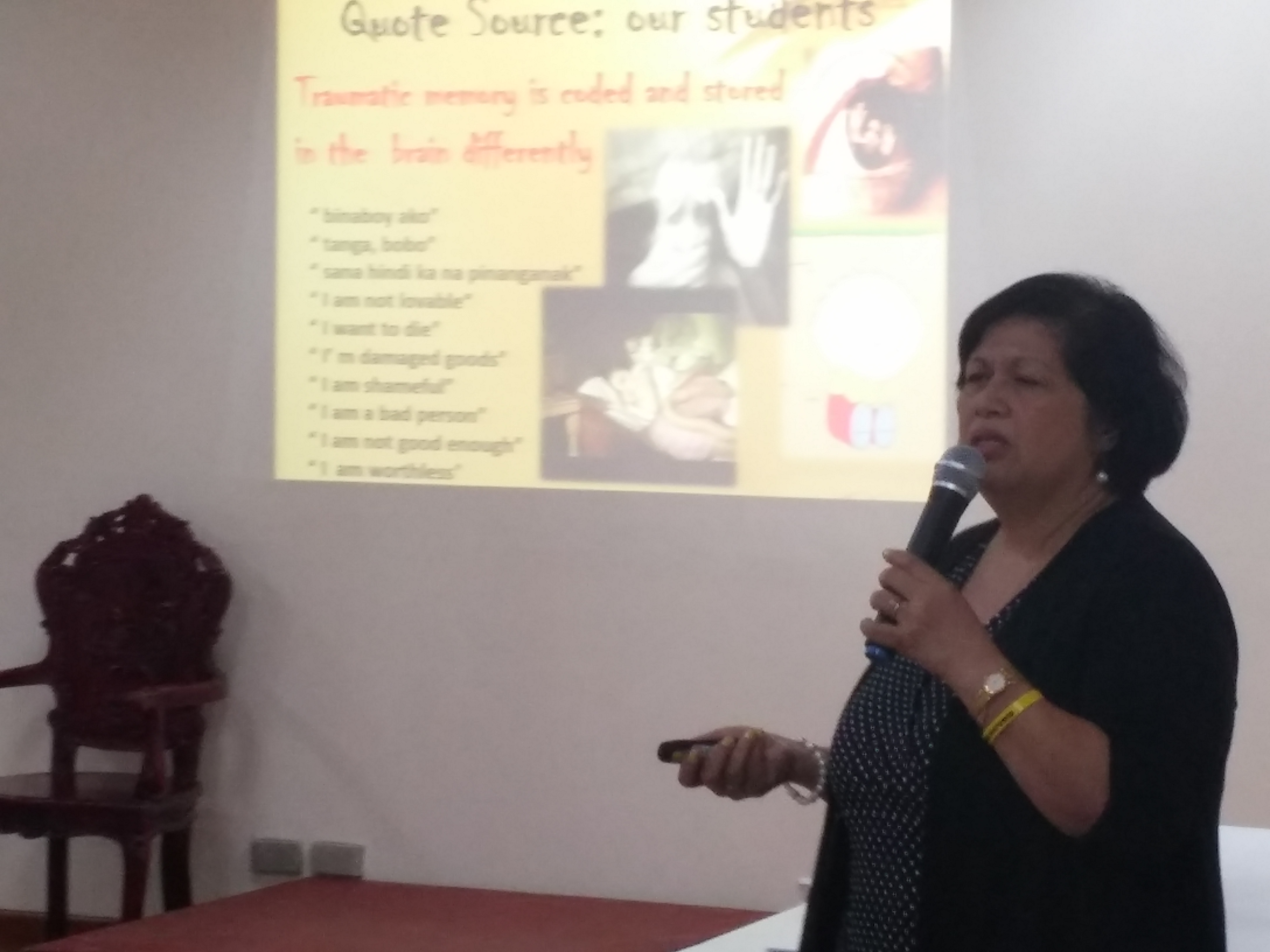

Dr. Lourdes Medina
The College of Education, in coordination with the Faculty Association of the College of Education, organized a seminar-workshop on early intervention for students in crisis. This is brought about by reported cases of students in the college who had painful experiences in the past from which they were unable to move forward. The seminar-workshop entitled, “Getting Past Your Past”, was held on April 27, 2016 at the Special Education Room of the Albertus Magnus Building. It aimed to facilitate delivery of powerful and practical skills for educators to be effective instruments to assist students overcome the traumatic imprints of their past and alleviate their fear or anxiety. The activity recognizes the teachers’ role as counselors.
Assoc. Prof. Lourdes C. Medina, Ph.D., a faculty member of the UST Graduate School and the College of Education, was invited to facilitate the seminar-workshop. Medina holds a graduate degree in Individual and Family Counseling. She is a certified expert in traumatic stress and currently serves as the external coordinator of Porta Coeli Center for Psychotrauma Management and Counseling. In the half-day session, Medina described the harrowing reality that there students in the university who were victims of abuse. She explained how their dreadful experiences and disturbing memories result to their irrational negative self-belief that lead to hopelessness. Subsequently, Medina demonstrated how to help an individual process painful events and negative emotions. She likewise gave practical steps for teachers to relieve their fears and stress. Faculty attendees were able to learn and exercise proper breathing, butterfly hug, knee tapping and other techniques for stress reduction which may also be utilized to treat anxiety, depression and peak performance issues through practice and training.
Education Dean Dr. Allan de Guzman, together with around 40 faculty members of the College of Education and non-affiliates, participated in the seminar-workshop. De Guzman, in his closing remarks, accentuated through a song the benefits of a social support network – friends, family and peers -- in one’s psychological well-being.